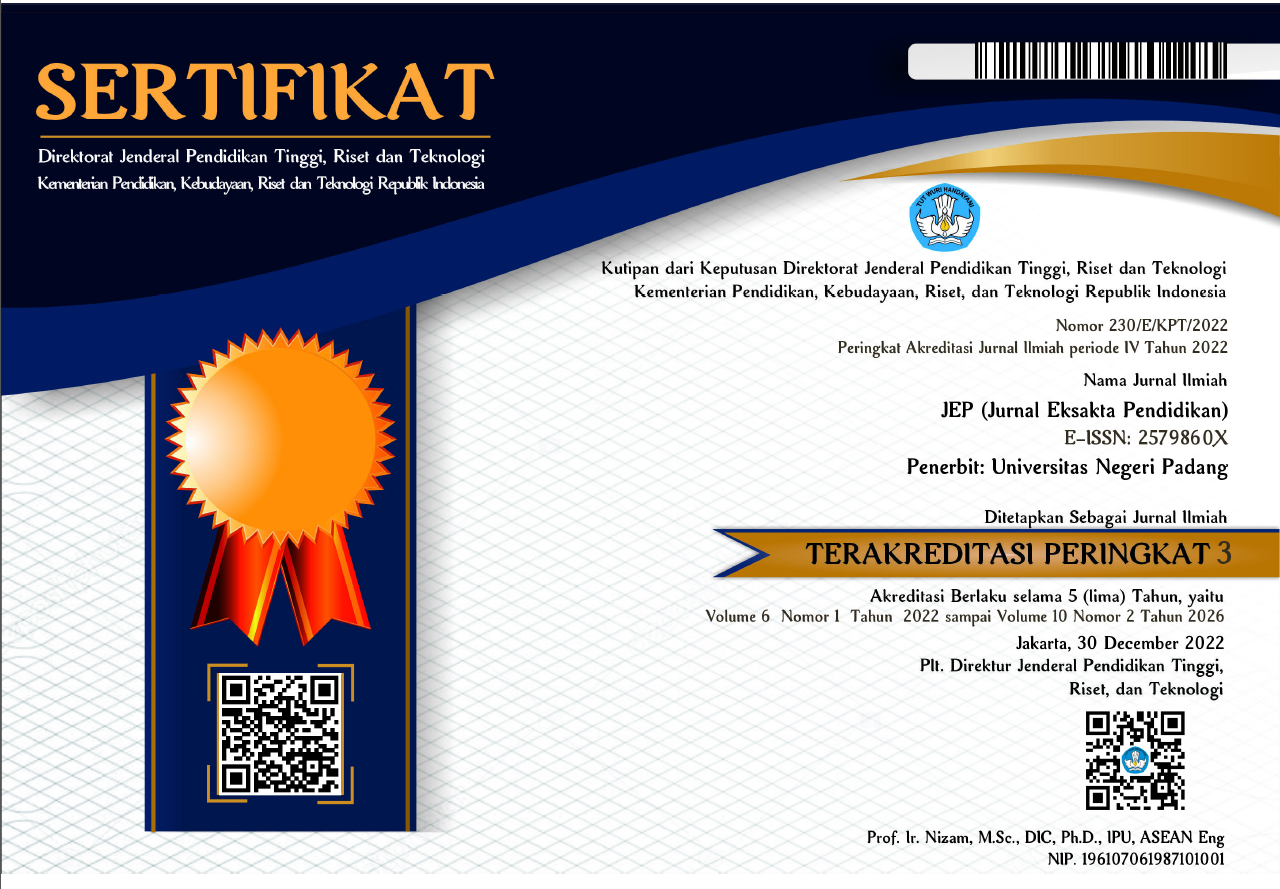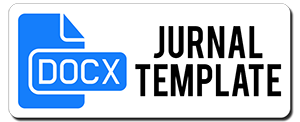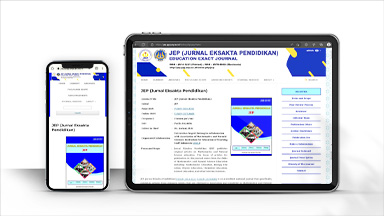Peningkatan Aktivitas Menjawab dan Kualitas Jawaban Mahasiswa dengan Pertanyaan Prompting pada Mata Kuliah Strategi Pembelajaran Kimia
Abstract
This classroom action research aimed to increase students’ answering activity and quality of the answer to questions asked in Strategi Pembelajaran Kimia course. This research was done in two cycles each consisting of planning, action, observation, and reflection phases. Instruments used in this research were observation sheet and questionnaire. Prompting questions had been designed for each meeting. Primary action given was asking prompting questions in learning. Two observers did observation and lecture was recorded with camera. Observation data from observers and camera recording were analyzed descriptively to get percentage of students who answered question before and after prompting was given as well as to get percentage of keywords in the answer given by students. The result showed that students’ answering activity increased after prompting was given. The quality of the answer got better with prompting questions as well. The aid of visual media given in the next cycle showed that students dared to explain concepts they had not been familiar with. Other actions that increased students’ answering activity were time and reward givings. Data from questionnaire distributed at the end of the course showed that students like prompting questions because they could understand the question and concept asked and then find the answer.
Downloads
References
Ilie, C. (2015). Questions and Questioning. The International Encyclopedia of Language and Social Interaction (1st ed.). John Wiley & Sons, Inc.
Kawalkar, A & Vijapurkar, J. (2013). Scaffolding science talk: The role of teachers' questions in the inquiry classroom. International Journal of Science Education, 35(12).
Kemmis, S. (2010). What is to be done? The place of action research. Educational action research, 18(4), 417-427.
Kipper, H., & Rüütmann, T. (2010). Strategies and techniques of questioning effectuating thinking and deep understanding in teaching engineering at Estonian centre for engineering pedagogy. Problems of Education in the 21st Century, 19, 36-45.
Krathwohl, D. R. (2002). A revision of Bloom's taxonomy: An overview. Theory into practice, 41(4), 212-218.
Mas’ud, A.P. (2015). Teacher Questioning Behavior On Classroom Interaction In Teaching Reading Of English Classes. Undergraduate Thesis in Faculty Of Cultural Studies, Universitas Brawijaya
Oliveira, A. W. (2010). Improving teacher questioning in science inquiry discussions through professional development. Journal of Research in Science Teaching, 47(4), 422-453.
Sardareh, A.A., Saad, M.R.M., Othman, A.J., & Me, R,C. (2014). ESL Teachers’ Questioning Technique in an Assessment for Learning Context: Promising or Problematic?. International Education Studies, 7(9).
Sahin, A., & Kulm, G. (2008). Sixth grade mathematics teachers’ intentions and use of probing, guiding, and factual questions. Journal of mathematics teacher education, 11(3), 221-241.
Smart, J.B., & Marshall, J.C. (2013). Interactions between classroom discourse, teacher questioning, and student cognitive engagement in middle school science. Journal of Science Teacher Education, 24(2), 249-267.
Sulo, S. L. L., Paranto, S., Soedirjo, Waspodo, Mulyoatmodjo, D. (1980). Micro-Teaching. Jakarta: Proyek Pengembangan Pendidikan Guru, Departemen Pendidikan dan Kebudayaan.
Widjaja, W., Dolk, M., & Fauzan, A. (2010). The Role of Contexts and Teacher’s Questioning to Enhance Students’ Thinking. Journal of Science and Mathematics Education in Southeast Asia, 33(2), 168-186
Widodo, A. (2006). Profil pertanyaan guru dan siswa dalam pembelajaran sains. Jurnal Pendidikan dan Pembelajaran, 4(2), 139-148.
Wilen, W. W. (1991). Questioning Skills, for Teachers. What Research Says to the Teacher (3rd ed.). Washington, D.C: National Education Association.

This work is licensed under a Creative Commons Attribution 4.0 International License.




_(2579-860X).png)
_(2614-1221)1.png)




